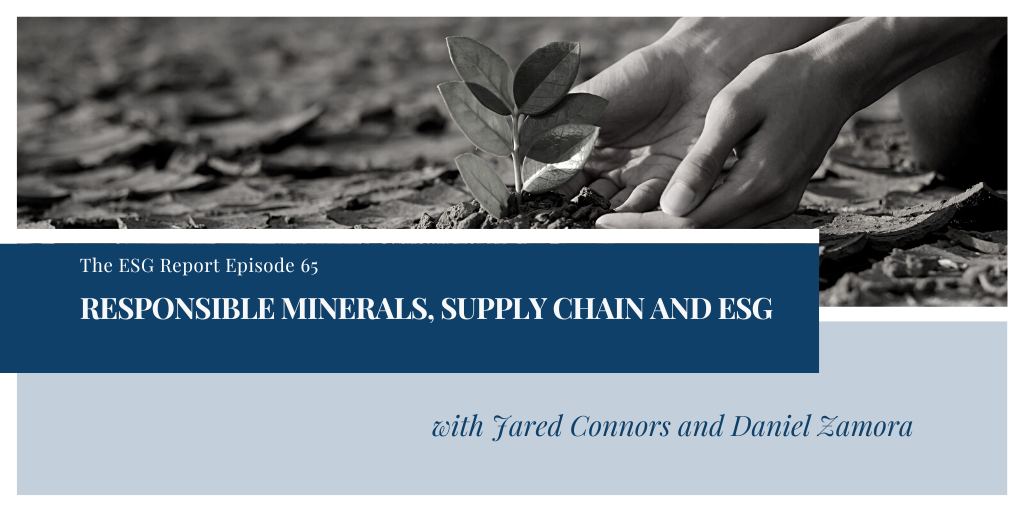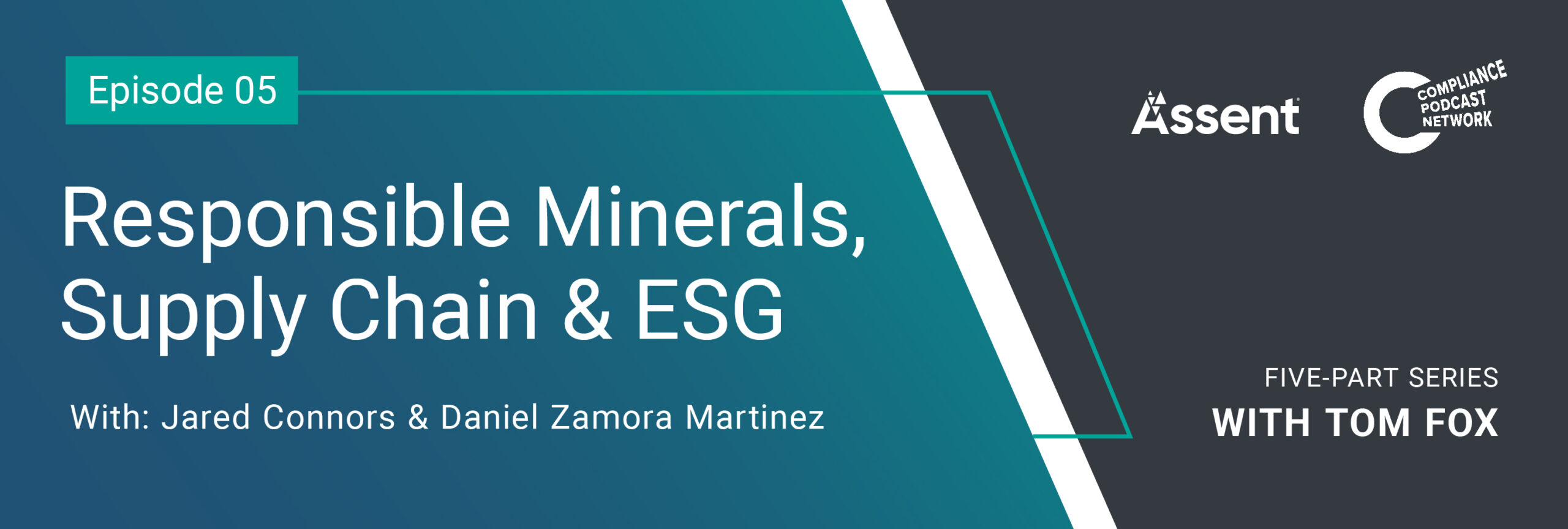
Jared Connors and Daniel Zamora join Tom Fox in this episode of the ESG Report to discuss how market expectations have evolved with regard to due diligence in the responsible sourcing field.
Due diligence used to be a data collection exercise where you get transparency into your supply chain, but now it’s all about what you do with that information after you collect data. It’s about how a company can move from being reactive to being proactive and going beyond regulatory requirements. It means risk management activities related to identifying sanctions within your supply chain. The first step to becoming proactive with your data due diligence is collecting data more efficiently. This allows you to have the resources in place to perform risk management within your supply chain. “You need to have a specific program in place that would allow you to see and identify the risks so you can see where minerals are coming from and where the minerals are going afterwards,” Daniel says.
Under the Biden administration, there has been a major focus on critical minerals when it comes to sanctions and regulations. Critical minerals are not specifically tied to the Dodd-Frank Act, but this focus has emphasized to all stakeholders in the industry to be vigilant about them in general. All stakeholders – downstream companies, shareholders, suppliers, customers, and employees – are engaging in discussions and conversations around the ESG requirements for critical minerals. Having an entity in your supply chain that is tied to a sanction puts you at risk, no matter how direct or indirect that linkage is.
Resources
Jared Connors on LinkedIn
Daniel Zamora on LinkedIn
Tom Fox’s email






